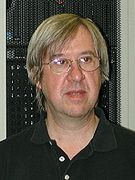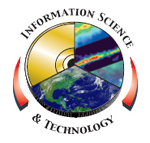
Please Note: The content on this page is not maintained after the colloquium event is completed. As such, some links may no longer be functional.
Alexander Szalay
Centennial Professor of Astronomy & Processor in Computer Science
The Johns Hopkins University
Extreme Data-Intensive Scientific Computing
Wednesday, April 25, 2012
Building 3 Auditorium - 11:00 AM
(Coffee and cookies at 10:30 AM)
Scientific computing is increasingly revolving around massive amounts of data. From physical sciences to numerical simulations to high throughput genomics and homeland security, we are soon dealing with Petabytes if not Exabytes of data. This new, data-centric computing requires a new look at computing architectures and strategies. We will revisit Amdahl's Law establishing the relation between CPU and I/O in a balanced computer system, and use this to analyze current computing architectures and workloads. We will discuss how existing hardware can be used to build systems that are much closer to an ideal Amdahl machine. We have deployed various scientific test cases, mostly drawn from astronomy, over different architectures and compare performance and scaling laws. We discuss a hypothetical cheap, yet high performance multi-petabyte system currently under consideration at JHU. We will also explore strategies of interacting with very large amounts of data, and compare various large scale data analysis platforms.
Alexander Szalay is the Alumni Centennial Professor of Astronomy at the Johns Hopkins University, and Professor in the Department of Computer Science. He is a cosmologist, working on the statistical measures of the spatial distribution of galaxies and galaxy formation. He is the architect for the Science Archive of the Sloan Digital Sky Survey. He was the initial Project Director of the NSF-funded National Virtual Observatory. His papers cover areas from theoretical cosmology to observational astronomy, spatial statistics and computer science. He is a Corresponding Member of the Hungarian Academy of Sciences, and a Fellow of the American Academy of Arts and Sciences. In 2004 he received an Alexander Von Humboldt Award in Physical Sciences, in 2007 the Microsoft Jim Gray Award.
IS&T Colloquium Committee Host: Jim Fischer
Sign language interpreter upon request: 301-286-7040
